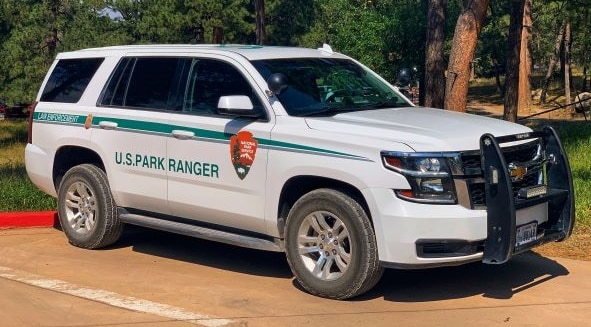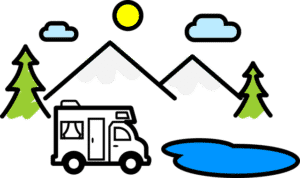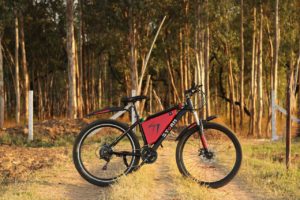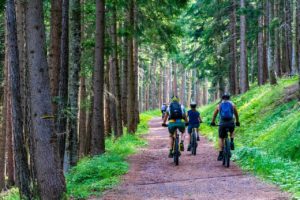National Parks are a wonderful source of enjoyment where you can find hundreds of ways to experience some of America’s natural wonders. But there are also things that you can’t do. Here are some of the most common things that are not allowed in national parks.
National parks are great for hiking, camping, sightseeing and other recreational activities. So what is not allowed in national parks? Many popular activities are not allowed, including:
- Marijuana
- Fireworks
- ATVs
- Drones
- Unleashed pets
- Illegal hunting and
- Alcohol (in some areas)
But don’t let these rules discourage you. The rules differ according to the park, so you need to be sure you know the rules where you’re going. Here are some of the main things you need to know.
Marijuana
 As of early 2022, 18 states, the District of Columbia and Guam all allow for recreational use of marijuana, while a handful of others have legalized it for medical purposes. Notwithstanding that, the possession and use of cannabis is still illegal under federal law. And since the national parks are federal land, the use of marijuana is prohibited in all national parks, regardless of where they’re located.
As of early 2022, 18 states, the District of Columbia and Guam all allow for recreational use of marijuana, while a handful of others have legalized it for medical purposes. Notwithstanding that, the possession and use of cannabis is still illegal under federal law. And since the national parks are federal land, the use of marijuana is prohibited in all national parks, regardless of where they’re located.
The ban applies to all forms of marijuana, including edibles. Penalties can vary from stiff sentences and jail time to smaller fines but be aware that it is a federal misdemeanor that will stay on your record. Best to just leave the pot at home and enjoy the parks legally.
Fireworks
 The use and possession of fireworks in national parks is strictly prohibited. The ban applies not only to national parks, but national forests as well. For obvious reasons related to health, safety and environmental concerns, violators can be fined in amounts starting at $500. If someone sets off fireworks and causes damage, they may be liable for that damage including, but not limited to, damage to buildings, trees, animals, or anything else in the park. And setting off fireworks that start a forest fire could land you in jail and with property damage reimbursement in the millions.
The use and possession of fireworks in national parks is strictly prohibited. The ban applies not only to national parks, but national forests as well. For obvious reasons related to health, safety and environmental concerns, violators can be fined in amounts starting at $500. If someone sets off fireworks and causes damage, they may be liable for that damage including, but not limited to, damage to buildings, trees, animals, or anything else in the park. And setting off fireworks that start a forest fire could land you in jail and with property damage reimbursement in the millions.
The ban applies to sparklers as well, so don’t plan on using them at the campground. The only time they’re allowed is with a permit, which is generally for commercial purposes. In short, leave the fireworks at home.
ATVs
 ATVs are prohibited in national parks. The rules are designed to protect the environment and wildlife and for the enjoyment of other park visitors. They are permitted, however, in some national recreation areas and national seashores. Check the rules of each park before you visit. Violating the law can have severe financial consequences.
ATVs are prohibited in national parks. The rules are designed to protect the environment and wildlife and for the enjoyment of other park visitors. They are permitted, however, in some national recreation areas and national seashores. Check the rules of each park before you visit. Violating the law can have severe financial consequences.
According to the Department of the Interior, violations could subject you to a maximum fine of $5,000 and up to six months in prison. Violations related to wildlife, plants, and natural or cultural features, carry a maximum penalty of $5,000 and/or six months in prison. Endangered Species Act violations can result in fines of up to $50,000, one year in prison, and civil penalties up to $25,000.
Finally, damage to or destruction of archaeological resources in violation of the Archaeological Resources Protection Act carry a maximum penalty of $20,000 and two years in prison. In short, if you’re visiting one of the 63 officially designated national parks, don’t bother to bring the ATV or other off-road vehicle. For other parks and areas, check their website for details.
Drones
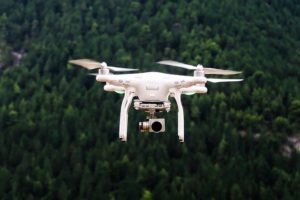 There is a blanket prohibition on the “launching, landing or operating” of drones from or on lands administered by the National Park Service. The ban took effect in 2014 and covers all national parks. According to the National Park Service “due to serious concerns about the negative impact that flying unmanned aircraft can have for safety of visitors, staff, and wildlife, they have been restricted in all but a few parks.”
There is a blanket prohibition on the “launching, landing or operating” of drones from or on lands administered by the National Park Service. The ban took effect in 2014 and covers all national parks. According to the National Park Service “due to serious concerns about the negative impact that flying unmanned aircraft can have for safety of visitors, staff, and wildlife, they have been restricted in all but a few parks.”
There is no prohibition on flying drones on land adjacent to a national park, as long as the drone doesn’t pass into the park’s airspace. Violations are a misdemeanor and could result in a fine of $5000 and six months in jail. For an alternative, many state parks and National Forests permit drones. Make sure to check the regulations at whatever park you plan on visiting.
Unleashed Pets
 National parks are a great place to take your pets. Dogs are allowed in almost all parks to at least some degree. For instance, in some parks dogs are allowed in developed areas or campgrounds, while they are prohibited on many trails. Check with the park rules before you visit.
National parks are a great place to take your pets. Dogs are allowed in almost all parks to at least some degree. For instance, in some parks dogs are allowed in developed areas or campgrounds, while they are prohibited on many trails. Check with the park rules before you visit.
One thing to know about every park, however, is that all dogs must be tethered on a leash not exceeding 6 feet or otherwise restrained at all times. The only exception is in parks that permit hunting, where the dog may be unleashed for the purpose of helping with that activity. And, as an aside, dogs are not permitted in national park buildings unless they are service dogs. Otherwise, be sure to bring along the leash and make sure fido stays in the right areas.
Illegal Hunting
 Hunting in not permitted in nearly all national parks. However, hunting on federal lands is not out of the question as many areas managed by the National Park Service permit hunting. Many of the national parks with preserves (such as Lake Clark National Park and Preserve and others) allow hunting in the preserve, but not in the park. One national park that allows limited elk hunting is Grand Teton National Park. You can learn more about the park here. The hunt is controlled, and you will need to look into getting a permit.
Hunting in not permitted in nearly all national parks. However, hunting on federal lands is not out of the question as many areas managed by the National Park Service permit hunting. Many of the national parks with preserves (such as Lake Clark National Park and Preserve and others) allow hunting in the preserve, but not in the park. One national park that allows limited elk hunting is Grand Teton National Park. You can learn more about the park here. The hunt is controlled, and you will need to look into getting a permit.
Also, many national recreation areas, scenic rivers and national seashores permit hunting and fishing. In total, there are 66 properties managed by the National Park Service that permit hunting. The total land area available exceeds 51 million acres. In many areas, permits and/or state hunting licenses may be required, so you’ll need to make sure you investigate each state’s licensing requirements and rules before you begin. Check out each area for more information.
Alcohol (in some places)
 Most national parks permit the possession and consumption of alcoholic beverages in campgrounds and public-use areas. Public use areas may mean parks, playgrounds, picnic areas and other public use spaces. Take note, however, that it is still illegal for persons under the age of 21 to consume alcohol. The Federal Uniform Drinking Age Act of 1984 required each state to set a minimum drinking age of 21, so you’ll be violating state law by drinking under 21 in the park.
Most national parks permit the possession and consumption of alcoholic beverages in campgrounds and public-use areas. Public use areas may mean parks, playgrounds, picnic areas and other public use spaces. Take note, however, that it is still illegal for persons under the age of 21 to consume alcohol. The Federal Uniform Drinking Age Act of 1984 required each state to set a minimum drinking age of 21, so you’ll be violating state law by drinking under 21 in the park.
And although it’s generally permissible in some areas, alcohol is generally prohibited in park buildings, parking lots, road pull-offs and trails. And, of course, you’re subject to any state laws related to driving under the influence, whether due to alcohol or drugs. As with everything else, the exact rules as to where alcohol can be consumed can vary depending on the park.
Related Questions
Are There Other Activities Prohibited in National Parks?
The above is just a list of general activities that are not permitted in most national parks. Other things may be prohibited, depending on the park. You should read all park regulations before visiting.
Can I Lose My Property If I Break National Park Rules?
Yes. If you have illegal fireworks or marijuana, it is likely to be confiscated by park personnel in addition to any fines you may have to pay. And although your drone is unlikely to be confiscated, it could still be seized if you cause damage to park property or wildlife.
Can I Be Charged With A Crime in a National Park?
Depending on the infraction, you can be charged with a federal misdemeanor. In theory, a conviction could result in heavy fines or jail time, although jail time is very rare for first-time offenders. Park rangers are responsible for enforcing the park’s laws and they have authority to issue citations and place someone under arrest for specific crimes.
Conclusion
Responsible use of national parks that is respectful of other visitors, wildlife and nature is permitted and encouraged in all parks. If you’re not sure about whether a particular activity not mentioned above is permitted, make sure to check the park’s rules and regulations. It may help you avoid any unnecessary trouble or fines.

